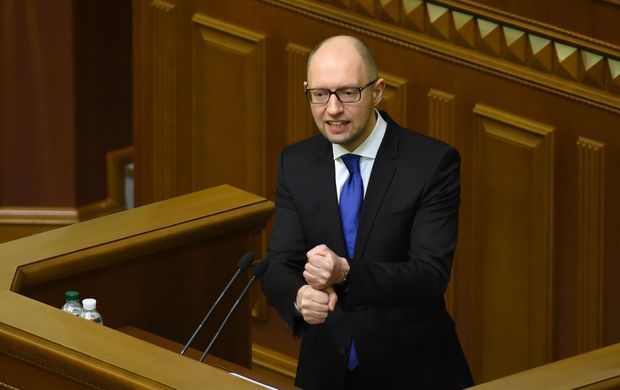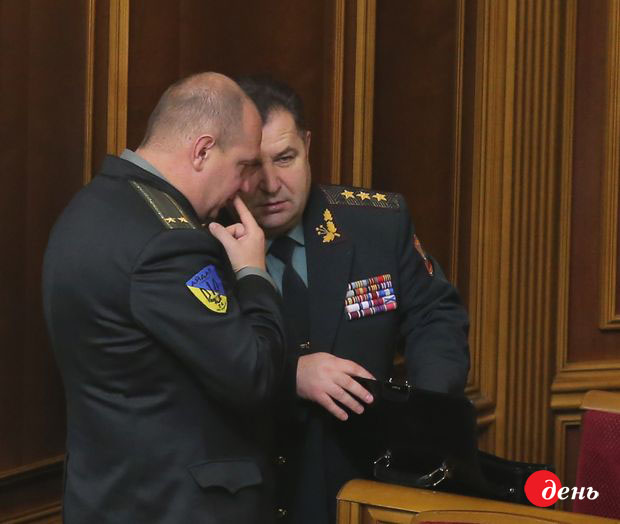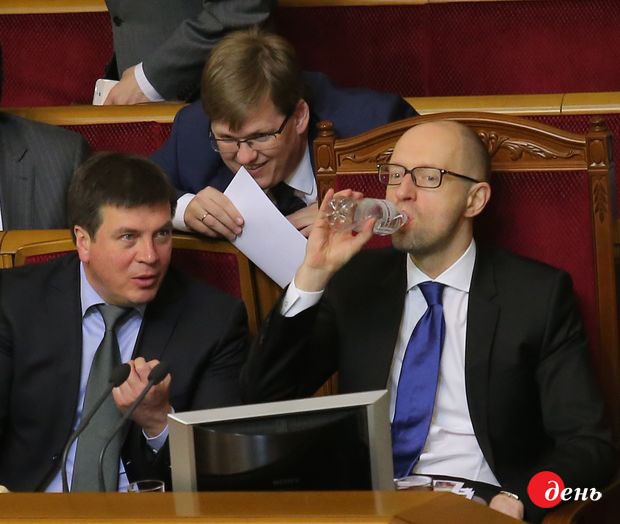A year of “immunity”– a year of new chances

The new Cabinet has had its action plan approved and a year’s immunity granted. While it is clearly a bit of good news, experts have quite a few negative expectations regarding the Cabinet’s likely use of this immunity.
The parliament has endorsed the Cabinet’s program for 2015-16. After lengthy intra-coalition discussions, caucuses of the Petro Poroshenko Block (PPB) and the Samopomich party provided the votes needed for the prime minister’s program to pass. They conditioned their support on Yatseniuk’s promises to take all requests from MPs into account and add to the document the statement that the program is based on the coalition agreement.
“The program is full of great things, like priorities, goals, and tasks. We want to see, however, a detailed program that will allow us to control the government’s actions. People now want far more from such documents, and this is why we want this program to offer a clear vision to the public,” PPB MP Viktor Chumak summed up in a conversation with The Day.

WHO CALLED THE PREMIER IMMEDIATELY AFTER HIS SPEECH? AND WHAT FOR? / Photo by Artem SLIPACHUK, The Day
In addition to the coalition agreement provision, chairperson of the Samopomich’s caucus Oleh Bereziuk wants the program to take into account three more points. “We need to have defense spending set at no less than 5 percent of the GDP, not ‘up to 5 percent.’ Secondly, the program must include serious reforms in housing and utilities sectors, infrastructure, transportation industry, and local government affairs, for all these fields are now in trouble. The recent events in Vinnytsia and Zaporizhia show that there is a crisis of local government in Ukraine. The third issue is education. We should not take any funding away from secondary education, as it has been underfunded by 20 to 30 percent for 23 years. Should we now cut funding for it even more, we will not have a government at all in 20 years because our children will grow up uneducated. Secondary education should be protected from any cuts,” he said, voicing demands of some members of the coalition.
Yatseniuk agreed to all these demands. However, repentance does not necessarily gains complete forgiveness for a sinner. So, we will now list what the experts see as weak points of the act passed by the parliament on December 11.

THE PREMIER IS TAKING THE “ORDER” / Photo by Oleksandr KOSARIEV
Firstly, the program’s diagnosis of Ukraine’s illness is wrong.
The prime minister listed three issues as the key causes of the current economic crisis in Ukraine: the Russian aggression, energy dependence, and corruption. In fact, these are consequences of a much more serious affliction called oligarchic control of the economy which has robbed the country blind, and has therefore made it both weak in the face of a foreign enemy and insolvent despite having vast natural resources. Therefore, the government would do well to present in its program a vision of its preferred measures needed to dismantle oligarchic control infrastructure in the country in the first place, and move the case for belt-tightening policies well down its agenda. The question of likely victims of belt-tightening arises immediately on reading it.
This government, which boasts cutting-edge managers on its roll, has failed to offer any innovative policies, and this is the program’s second weak point.
Proposals to boost the public finances via increases in tax rates and a reduction in social spending look too obvious to require any deep thought from their authors. According to former minister of fuel and energy Serhii Yermilov, the government’s action plan is a primitive document, which does not offer non-standard solutions which are required by the particularly difficult situation Ukraine is in now.

SERHII MELNYCHUK, MEMBER OF PARLIAMENT AND FORMER AIDAR BATTALION COMMANDER, WITH DEFENSE MINISTER STEPAN POLTORAK. WILL 5 PERCENT OF GDP SUFFICE FOR THE ARMY AND LAW-ENFORCEMENT BODIES IN WARTIME? / Photo by Artem SLIPACHUK, The Day
“Why the program has nothing to say about reversing the shameful pension reform, despite this measure being loudly promoted by the prime minister at talk shows not long ago? Instead of it, they are going to eliminate inefficient benefits. What an outrage it will be, to see an official determining which groups deserve benefits! These reforms will be funded by lowering common people’s living standards, while oligarchs will not be hit at all,” independent MP Serhii Mishchenko fumed as he commented the events for The Day. He believes that if the government is going to cut the civil service numbers, it should reduce personal taxes by an equivalent amount, but it is not doing so.
In addition, PPB MP Oksana Prodan complained about the government program keeping VAT accounts in force, despite all five caucuses agreeing to abolish them in the coalition agreement. What is this? Is it a case of intentionally hindering the coalition’s efforts?
While Prodan’s complaint is factually correct, we cannot help but wonder whether the majority MPs were truly uninformed about the weak points of this document. Is it possible that they just fake their ignorance, for they have to vote based on secret agreements? Here we come to the third weak point of the December 11 vote, as this so-called Euromaidan parliament has not shown the promised new approaches to politics so far. Inter-party bargaining and party-line voting are still there... After all, the program passed its test immediately after emergency meetings of two caucuses.

BEFORE A DECISIVE VOTE / Photo by Artem SLIPACHUK, The Day
“We were given the orders to undermine Yatseniuk in the morning, but the boss then called Yurii Lutsenko to notify him that the plans had changed,” The Day learned from a PPB MP who insisted on anonymity as he shared with us the details of that day.
The Day asked former finance minister, currently serving as a PPB MP, Viktor Pynzenyk about his take on the program and reasons for endorsing it. The former minister said he still had issues with the program, but as the government agreed to fix them, and his caucus decided to support it, he had to vote in favor of the act. So, it looks like the “party serfdom” practice has not sunk into oblivion, despite the Euromaidan having its abolition among its most ardently supported demands. Should it go on, the vote for the 2015 budget, preceded by revising the Tax and Budget Codes, risks becoming a banal and opaque exercise in parliamentary horse-trading, where the interests of the people are no more than a bargaining chip.
Against this background, abounding in weak points, the strong point is a modest one, but it is nevertheless encouraging. After all, should the government use its immunity, in spite of everything, to launch reforms which are unpopular primarily with the top level of political elite, such as blocking corruption loopholes which enable siphoning off public money, there is a chance that this super-austerity will refill our tanks soon, allowing the country to escape the economic abyss.
According to US Vice President Joe Biden, Ukraine should not miss another opportunity to change the country for the better, because if it does so again, the Ukrainians will have no chances coming their way any time soon.






